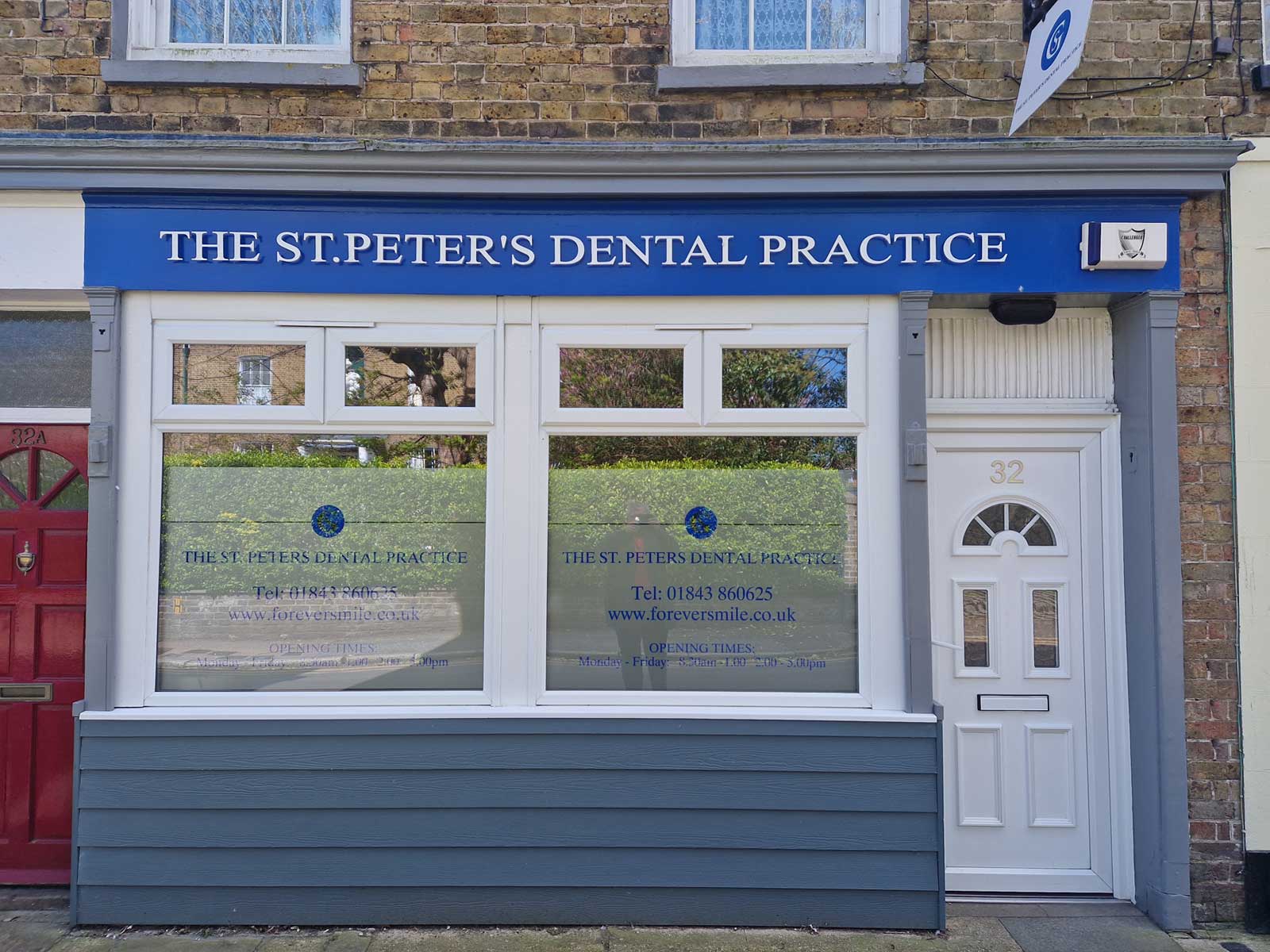
Bridge the gap created by one or more missing teeth When a tooth is lost a space is left which can be unsightly, can cause difficulty in chewing or can result in movement of the adjacent teeth. There are many options for filling spaces including implant and dentures, but the most popular is the dental bridge. If you have lost one or two teeth but would rather not wear a denture and are not read for or suitable to have a dental implant, you may want to opt for a bridge. Bridges are a series of crowns joined together to close a space left by the loss of a tooth. They are permanent and once bonded into place will look and feel similar to natural teeth.
Bridges can be supported by natural teeth or by implants. At The St Peter's Dental Practice we will check the health of your gums and the supported teeth to ensure that they are suitable for treatment and take appropriate measures if they are not. We will discuss all your options with you to ensure that you can keep your mouth healthy and your smile stunning with a well-fitting and natural looking bridge.
What are the benefits of Dental Bridges?
The life of complex restorations, and the teeth or implants that support them can be greatly extended by proper maintenance. Your restorations should have smooth flowing contours and easily cleansable shapes to allow thorough cleaning with a toothbrush and either dental tape, "superfloss", or an interdental brush. Careful cleaning of the gum at the neck of the tooth or implant will not cause the gum to recede - on the contrary it will prevent recession from taking place. The main cause of receding gums is the inflammation resulting from plaque accumulation around the crown - gum margin. Regular hygienist appointments will ensure that gums are healthy and well maintained.
Removing the plaque from around the neck of the dental or implant crown and under the pontic (false tooth) of a bridge will also help to prevent decay and enhance the shape and contour of the gum. This is also true for temporary restorations; correct maintenance of the gum before the final crown is placed will ensure that the level of the gum remains stable when the final restoration is cemented. However when restorations are cemented with weak temporary cement try to avoid dislodging them with the dental tape, by removing the tape from between the teeth by pulling it out at the side.
Temporary and porcelain crowns are weaker than metal crowns. Chewing hard sweets or toffees, or habits such as fingernail biting, or pencil chewing are obviously bad for teeth, but they are even worse for crowned teeth, and can lead to fracture of the crown, root, or porcelain.
Crowns will not protect teeth from decay so it is important to avoid frequent sugary snacks, or sugary drinks.
Initially, you may expect a certain amount of sensitivity to cold, and occasionally, hot foods and drinks. Extreme sensitivity is unusual but may be the result of pre-existing inflammation of the dental nerve. This will normally settle over a matter of a few days or weeks. Smearing de-sensitising toothpaste around the neck of the tooth before going to bed may help in some situations. However if the inflammation and sensitivity worsens, further treatment may be required; in this unlikely event please let us know.
Implant retained crowns and bridges need cleaning in just the same way as conventional tooth-supported crowns and bridges. Although implants are immune to decay, plaque accumulation around the implant as it emerges through the surrounding gum will still cause inflammation, and might cause loss of bony support.
Large implant bridges replace missing gum and bone tissue as well as teeth, and extend well under the lip making access even more tricky. It can be impossible to clean effectively with an ordinary toothbrush alone. The use of accessory aids to cleaning such as small 'interdental' brushes and 'superfloss' or the use of floss threaders are mandatory. Seeing a hygienist on a regular and frequent basis is essential. We sometimes see patients on a monthly basis until they have been proven to be capable of optimally maintaining their bridgework themselves.
Meticulous home care and regular examination and maintenance with Adri our hygienist will ensure that any potential problems are identified early, and that you are doing all that can be done to keep your teeth and gums healthy and your new restorations looking good.
To find out more Call us at 0184 3860625 or request an appointment at our practice in Broadstairs, Kent.

Do you have a problem or is something bothering you?
Here at The St. Peter's Dental Practice we aim to give you the help you need at an affordable price ....
More© The St. Peter's Dental Practice 1990-2026 - All Rights Reserved | Company Number: Registered In England & Wales